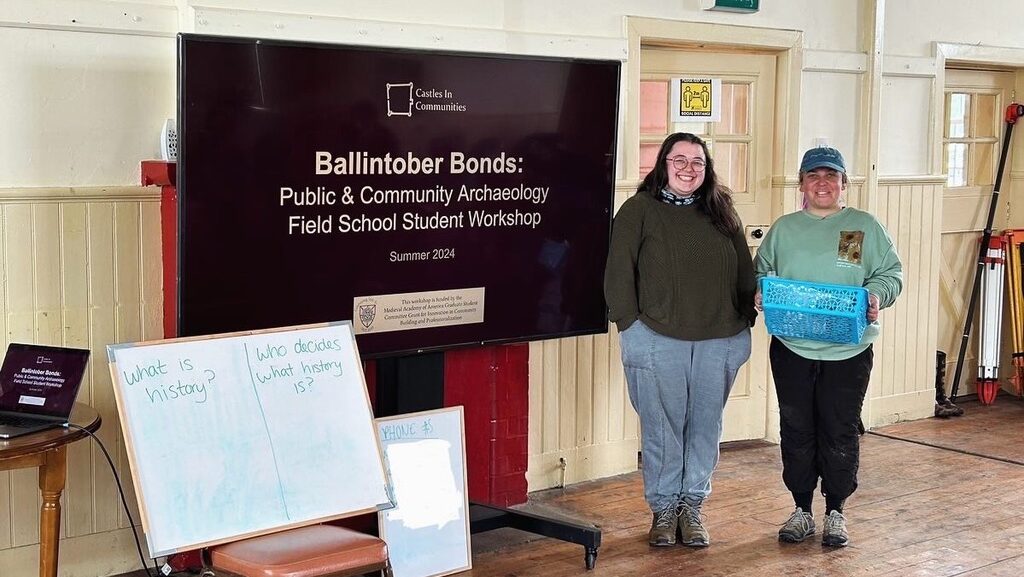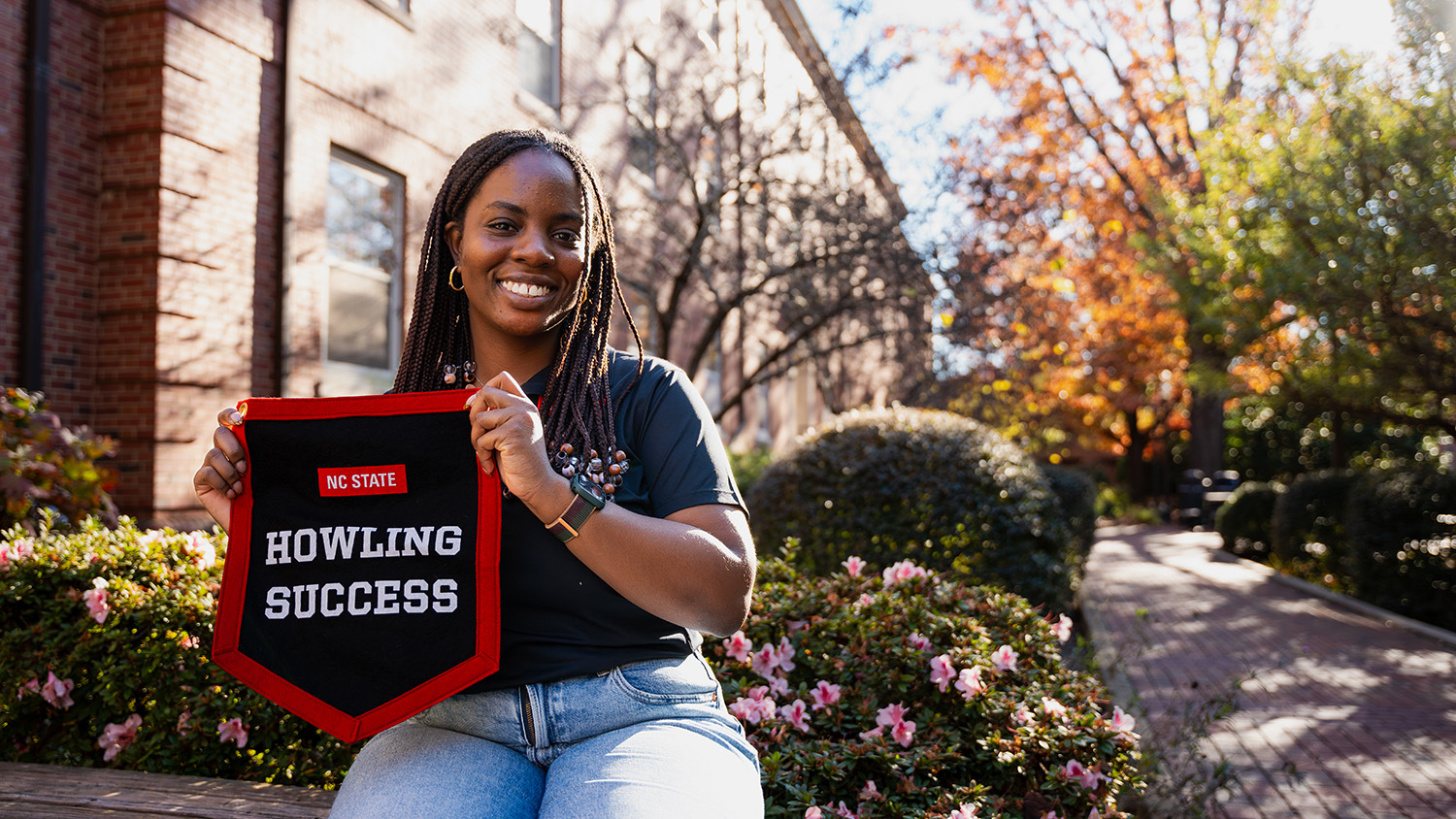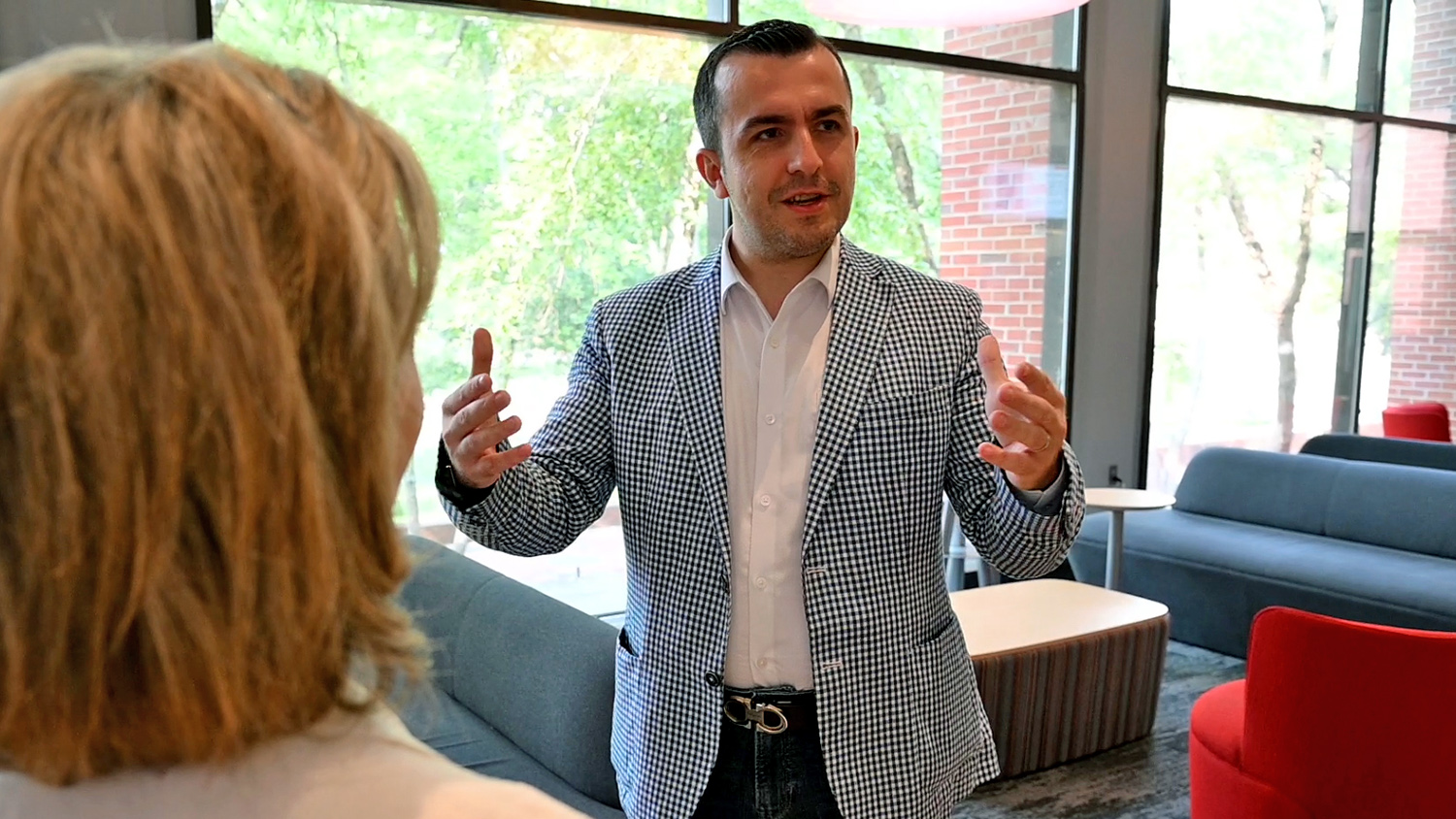Donor Support Fuels CHASS Graduate Student Research, Experiences

It was, in part, the multicultural student body at NC State that inspired Gunnar Dunford’s path of study.
He initially enrolled as an undergraduate with an interest in engineering, but realized it wasn’t the right fit for him. Through conversations with peers and faculty, and inspired by an interest in learning more about the cultures of some of his international friends on campus, Dunford decided on a major in international studies.
When he graduated and began to think about a master’s degree, NC State was at the top of the list for its program, and it fit the bill when it came to finances as well.
“Finances were a big part of the decision,” Dunford says. “I knew I could live at home and save money on rent and food; it was a public university with in-state tuition – and even then, I still have loans.”
So any additional support that NC State’s College of Humanities and Social Sciences (CHASS) could offer its graduate students was on his mind. Dunford’s specific area of interest for his master’s is in East Asia and examining the relationships between China, Japan and South Korea. While libraries and the internet could offer him extensive knowledge, being immersed in a country’s culture could do even more.
Thanks to the Marvin S. Soroos International Student Support Fund, Dunford was able to spend two weeks in Japan, studying historical memory and how populations remember events like World War II and the bombings of Nagasaki and Hiroshima. Beginning in Tokyo and then traveling to destinations including Kyoto, Osaka and Hiroshima, the trip made an impact in so many ways.
“Being able to experience another country was a really important part of my studies,” Dunford says. “And it was my first time abroad – it really broadened my horizons.”
CHASS knows financial support to cover costs such as tuition and fees or funding for high-impact experiences like Dunford’s matters to graduate students. Increasing the amount of support the college can provide to each student is a priority. As CHASS leadership looks to the future, it’s an area where donations from alumni and friends can make a big difference.
Competing With Other Schools for Enrollment
CHASS leaders know they’re competing with other institutions to attract the best and brightest graduate students to NC State. Currently, other institutions often offer better financial packages to graduate students. In recent years, more than 140 admitted CHASS graduate applicants ultimately chose to enroll elsewhere, in part because of this gap.
That matters for several reasons, says Traci Brynne Voyles, professor and head of CHASS’s Department of History.
“Our program is well known and prestigious, and places students in really high-impact careers,” she says.
Faculty are among the top scholars in their field in many cases, she adds. So if graduate students can’t afford to attend NC State, they miss opportunities. NC State and CHASS miss out as well.
“Faculty want to impart their knowledge to move these students on to extraordinary careers,” Voyles says. “This increases NC State’s impact around the world.
“Some go on to traditional academic careers, and students are also placed in government agencies and museums; some go on to work abroad,” she continues. “If we bring in the best students who move on to these high-impact careers, then they become advocates for NC State around the world.”
Helping Students Meet Rising Costs
Finances are the most important deciding factor when recruiting the top students, Voyles says. Rising housing costs in Raleigh have made it prohibitive for students to live on a graduate stipend. Graduate students face other financial challenges as well such as debt from their undergraduate education or some may have a partner or children to support while also attending school.
“When we do lose out on our top picks to other programs, what we hear is that NC State, and our program in particular, is their top choice but the financial factor outweighed that choice,” she says. “We do hear from students that more funding would make a big difference.”
Wendy Vencel, who is pursuing her Ph.D. in Public History, knows this is true. Vencel did receive full funding from CHASS and says she didn’t apply to any programs where she wouldn’t receive full funding because she was already carrying debt from her undergraduate degree.
“It is an unfortunate reality that things just seem to be getting more and more expensive,” she says. “If we want to have the research and academic success that the university has had in the past, there needs to be a willingness to support the next generation of scholars.”
Ensuring Essential High-Impact Experiences for Students
Vencel also received support to take her studies abroad. With her research having a focus on “the public’s interactions with medieval history through cultural heritage sites,” it was indeed important to be present and study at medieval sites.
The James Otis Sorrell Fund, established through a gift from alumnus James Sorrell to CHASS’s public history program, helped cover Vencel’s travel, room and board for a six-week experience working at a historic 14th-century Irish castle.
Dunford and Vencel are just two examples of the importance of funding travel experiences for students pursuing graduate degrees within CHASS. Voyles can name many more just within the Department of History: a student doing Polish language work in Warsaw and Krakow; another traveling to London to work on crime records at the London Metropolitan Archive; a third writing a thesis on F. Scott Fitzgerald and the eugenics movement who spent a week at the Firestone Library at Princeton working through the Fitzgerald papers.
The list goes on, and it’s important to note that these are work-intensive travels where students spend long days in pursuit of the goals of their research.
“You simply can’t have access to these documents, people and places if you stay put in the Research Triangle,” Voyles says. “You can’t do that original research as a historian without being able to travel.”
Graduating Ph.D. student Shima Hosseininasab even took time during her exit interview to talk in-depth about how doing research and conducting oral history interviews in the Netherlands made all the difference for her dissertation.
“They were all art historians, so none of them wanted to meet on Zoom, where they wouldn’t be able to show me the materials they were talking about,” she said.
Hosseininasab went on to say that she didn’t even ask the department to help fund a separate trip to South Africa because she thought it was “too expensive” – highlighting what additional donor support could do in the future for graduate students.
These types of experiences are a recruitment incentive as well, Voyles says. Though not necessarily unique to CHASS, they are a strength for the college and not something all programs offer.
“They’re one reason we’ve been able to land top-notch students – we use and direct donor and grant funds to support graduate student travel,” she says.
All Donations Can Make a Difference
Increased donor support for graduate students in the future could be a game changer.
“I think donors would be surprised how much impact we can have with modest donations,” Voyles says. “If we can increase Ph.D. stipends by $5,000 per student, it radically changes the level of students we’re able to recruit.”
Funding to support a graduate student in a research assistant position can be as low as $7,500 per semester, she says.
“Every dollar matters when you talk to a graduate student,” she says.
Financial support for travel experiences can mean the difference in simply affording a plane ticket to their destination.
“We tell the world’s stories, and we aren’t able to do that without being able to actually access the people, places and artifacts that tell us those original stories,” Voyles says. “Donor dollars can go far in creating career-changing outcomes for these students.”
- Categories:


